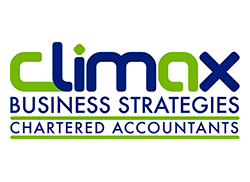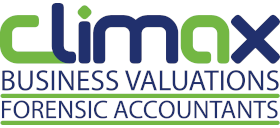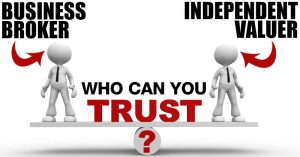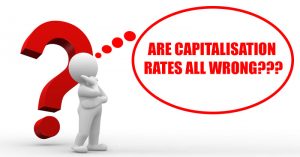I work a lot with people buying businesses. Often it’s the buyer’s first time in the business world. Talk is cheap. They are looking for guidance and they form an immediate bond with the business broker and begin to trust what they say. This is understandable because the broker seems to make sense and builds a compelling story about why they should buy the business. The purchaser isn’t in a position to disagree or challenge any of the assertions by the broker and they have no reason not to trust them…or so they think. For some reason, inexperienced purchasers don’t Read more
Uncategorized
I always laugh (or cry) when I hear someone explain how their business is different or how their industry is unique and therefore the normal laws of finance don’t apply. This kind of argument typically comes up when someone is trying to justify to themselves or someone else that their business or worth either a fortune or nothing. In one simple sentence they hope to prove that all of these thousand-page textbooks that business valuers are forced to read don’t apply to them because they’re special. Obviously I sound a bit harsh but hear me out. Every investment involves one Read more
As an independent business valuer I get to see lots of valuations done by others. Some are great, some make me cringe. One of the most common mistakes I see is when stock or other operating assets like trade debtors are added on top of the business valuation. When using an earnings multiple or discount cash flow method, the value calculated is generally an enterprise value. This value already includes everything necessary to operate the business at the expected levels of profitability. For this value the purchaser gets everything necessary for that price. This value already includes an ordinary amount Read more
The biggest myth in business valuations and in my opinion the most dangerous mistake a business valuer or anyone can make is assuming that you can compare capitalisation rates between companies. Most mornings I wake up and feel like writing an entire book just on the last sentence. In case I wasn’t clear enough, let me say it a different way. It is grossly incompetent and probably legally negligent to value a business based primarily on the capitalisation rate of the recent sales of similar businesses. I know that a lot of people reading this will think I’ve gone crazy Read more
Every now and then I come across a seller who doesn’t want to share their full financials. This is stupid, unforgivable and forces me not to trust you. Sure, the tax returns don’t show the true performance of the business…but that’s why we make normalisation adjustments. A good business valuer (or purchaser) will let you suggest the adjustments as a starting point so don’t worry about what the tax figures show. I am often provided with a profit and loss statement after adjustments, which basically means all the bad parts are deleted. The problem with this, is that even if Read more
It makes my stomach churn every time I hear it. And I hear it far too often from people that should probably know better. It usually goes something like “but Trevor, your business valuation is wrong…buyers don’t care about future profits, they care about the real figures”. I’m tempted to stop this article right here because the people that get it will get it and the people that don’t probably never will. But I’ll be patient and optimistic and give it a go. A few simple examples: 1) Would you buy a lottery ticket for yesterday’s draw? How could you Read more
When undertaking a business valuation I look at hundreds of factors to investigate how the business works and how much profit it should make in the future. Does the business need a genius to be successful? This is one of the key factors I’ll form an opinion on when calculating the value of a business. When undertaking a business valuation I look at hundreds of factors to investigate how the business works and how much profit it should make in the future. Does the business need a genius to be successful? This is one of the key factors I’ll form Read more
Benchmarks and industry rules of thumb are typically used by lazy or uninformed people who don’t understand basic finance theory. Here are 5 compelling reasons why: Source of the Data is Unreliable: Do you actually know where the data has come from? Did you know that the only mandatory reporting for small business is to the tax authorities? Do you think that every business in your industry reports the true performance of their business to the tax office? I’m not just talking about tax evasion issues, but also that the tax laws have rules for calculating profits that are very different Read more
I am seeing too many examples of professional qualifications being hacked and abused by questionable business models and marketing. Is your adviser actually qualified or not? You need to look through the marketing spin and determine whether the person giving you advice actually has the qualifications and experience to do so. Here are 4 recent examples I’ve personally come across: Tax Advice: I’ve seen a recent trend of tax agents appearing to lend their qualifications to others on the front line. In one particular example, a tax agent (based in one state) was looking to recruit unqualified employees/contractors in other states Read more

This was my response to a question from a business owner that didn’t have financial data available, but wanted an estimate of value: “Great to hear from you. I wish it was as easy as just doing a ballpark estimate, but the problem is that once I get the financial information I’m going to make so many changes to the initial information that it’s unlikely to bear much resemblance to the financials and tax returns. I’m going to take out expenses that aren’t ‘necessary’ to operate the business and I’m going to bring in hypothetical expenses from a buyer’s point Read more









